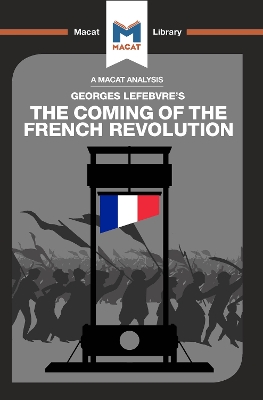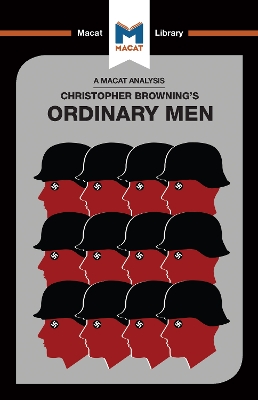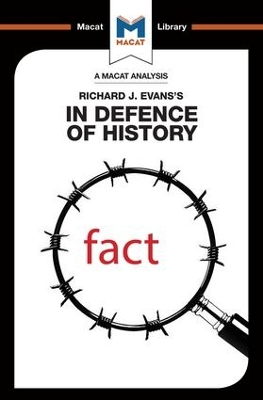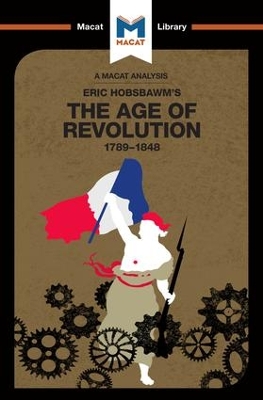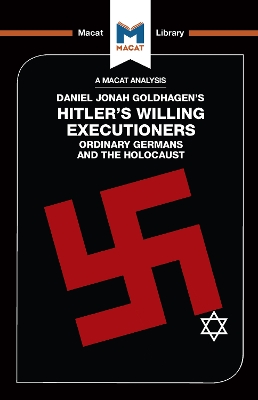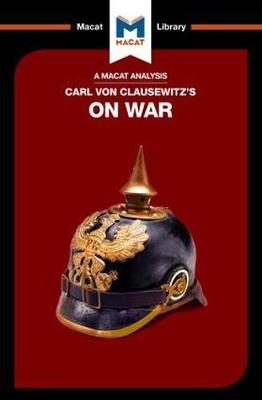The Macat Library
12 total works
An Analysis of Georges Lefebvre's The Coming of the French Revolution
by Tom Stammers
Georges Lefebvre was one of the most highly-regarded historians of the 20th century - and a key reason for the high reputation he enjoys can be found in The Coming of the French Revolution.
Lefebvre's key contribution to the debate over what remains arguably one of history's most contentious and significant events in history was to deploy the critical thinking skill of evaluation to reveal weaknesses in existing arguments about the causes of the Revolution, and analytical skills to expose hidden assumptions in them. Rather than seeing events as driven by the aristocracy and the bourgeoisie - which then lost power to the urban workers - as was usual at the time, Lefebvre deployed years of research in regional archives to argue that the Revolution had had a fourth pillar: the peasantry.
Painting the upheaval as complex and multi-layered - while still privileging a predominantly economic interpretation - Lefebvre provides a compelling new narrative to explain why the French monarchy collapsed so suddenly in 1789: one that stressed the significance of a 'popular revolution' in the rural countryside.
Of all the controversies facing historians today, few are more divisive or more important than the question of how the Holocaust was possible. What led thousands of Germans - many of them middle-aged reservists with, apparently, little Nazi zeal - to willingly commit acts of genocide? Was it ideology? Was there something rotten in the German soul? Or was it - as Christopher Browning argues in this highly influential book - more a matter of conformity, a response to intolerable social and psychological pressure?
Ordinary Men is a microhistory, the detailed study of a single unit in the Nazi killing machine. Browning evaluates a wide range of evidence to seek to explain the actions of the "ordinary men" who made up reserve Police Battalion 101, taking advantage of the wide range of resources prepared in the early 1960s for a proposed war crimes trial. He concludes that his subjects were not "evil;" rather, their actions are best explained by a desire to be part of a team, not to shirk responsibility that would otherwise fall on the shoulders of comrades, and a willingness to obey authority.
Browning's ability to explore the strengths and weaknesses of arguments - both the survivors' and other historians' - is what sets his work apart from other studies that have attempted to get to the root of the motivations for the Holocaust, and it is also what marks Ordinary Men as one of the most important works of its generation.
An Analysis of Richard J. Evans's In Defence of History
by Nicholas Piercey and Tom Stammers
Richard Evans wrote In Defence of History at a time when the historian's profession was coming under heavy attack as a result of the ‘cultural turn’ taken by the discipline during the late 1980s and the 1990s. Historians were being forced to face up to postmodern thinking, which argued that, because all texts were the product of biased writers who had incomplete information, none could be privileged above others. In this reading, there could be no objective history, merely the study of the texts themselves.
While In Defence of History addresses all aspects of historical method, its key focus is on an extensive evaluation of this postmodern thinking. Evans judges the acceptability of the reasoning advanced by the postmodernists – and finds it badly wanting. He is strongly critical both of the relevance and of the adequacy of their arguments, seeking to show that, ultimately, they are guilty of failing to accept the logic of their own position. All texts are equally valid, or invalid, they suggest – while insisting that the products of their own school are in fact more ‘true’ than those of their opponents. Evans concludes by pointing out that this same argument could be advanced to suggest that the works of Holocaust deniers are just as valid as are those of historians who accept that the Nazis set out to commit genocide. So why, he demands, is no postmodernist willing to say as much? A devastating example of the usefulness of relentless evaluation.
An Analysis of Eric Hobsbawm's The Age Of Revolution
by Tom Stammers and Patrick Glen
The Age of Revolution is the first of four works by Eric Hobsbawm that collectively synthesize the ideas he developed over a lifetime spent studying the nineteenth and twentieth centuries.
Hobsbawm's vision is important – he was a lifelong Marxist whose view of history was shaped by a fascination with social and economic history, yet who privileged evidence over political theory – but the real power of these works, and especially The Age of Revolution, emanates from the wide range of the author's reading and his mastery of the critical thinking skill of evaluation.
It is this skill that allows Hobsbawm to combine insights drawn from decades of reading into an original thesis that sees the crucial "long 19th century" as a period shaped by "dual revolution" – the twin impacts of the Industrial Revolution in Britain, and the French Revolution on the continent. Hobsbawm supplemented his evaluative excellence with a firm grasp of reasoning, crafting a volume that contains brilliant, clearly-structured arguments which explain complicated ideas via well-chosen examples in ways that make his work accessible to intelligent general readers and scholars alike.
Daniel Goldhagen's study of the Holocaust offers conclusions that run directly counter to those reached by Christopher Browning, whose book Ordinary Men is also the subject of a Macat analysis. As such, the two analyses make possible some interesting critical thinking exercises focused on evaluation of the evidence used by the two historians. For Goldhagen, a chief reason for German actions was not the mundane good comradeship stressed by Browning, but a longstanding hatred of Jews and Judaism specific to Germany that dated back well into the previous century. Debating which historian is right, which has made better use of the available evidence, which has most successfully written objectively - and which advances the most secure interpretation of contested documents - forces students to think critically about one of the most important and (on the surface at least) incomprehensible events of the past century.
On War by Carl von Clausewitz stands as a major theorisation on the nature of war. Developed over a lifetime of lived experiences and research, Clausewitz argues that war is not a random, chaotic event, but has discernible elements shaped by logic and reason, human passions, and random chance. For Clausewitz, war is not simply blind, senseless violence but a political act, whose rules and vagaries can be understood; famously summarised as "War is politics by other means." Written nearly 200 years ago, On War still holds many lessons for those who wish to understand the political nature of war and its changing characteristics, despite its many misinterpretations and misuses.
